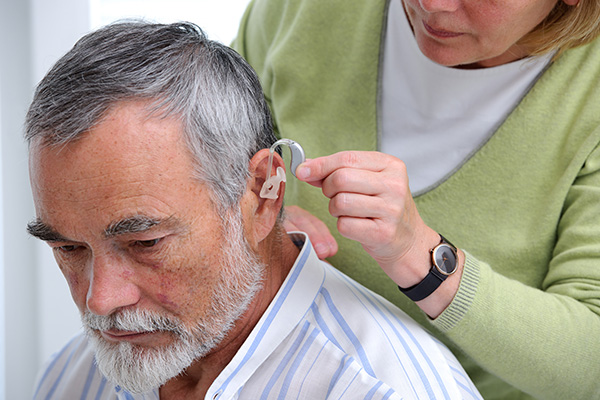How does Hearing Loss Lead to Depression?
It is true to say that in some cases, hearing loss can lead to depression.
COVID-19 UPDATE: Walk-Ins Welcome!

By: admin | January 15, 2020
Many Americans experience hearing loss. In many cases, those with hearing loss go months or even years without consulting a Hearing Instrument Specialist (HIS) or seeking treatment. This is unfortunate, as the longer people leave their hearing loss undiagnosed and untreated, the more opportunity it has to negatively impact their lives. Hearing loss can prevent people from interacting with their loved ones by making it harder to follow along with a conversation, especially at a restaurant, cafe or bar. It can make them strain to enjoy a song on the radio or a movie at home. It can cause them to upset their neighbors by turning the radio or TV too loud night after night. Seeing a HIS and getting fitted for a hearing aid can help those with hearing loss to take back control of their lives.
However, as potentially life-changing as a hearing aid can be, many who are newly outfitted with them can find the change slightly jarring because they’re unsure exactly what to expect. The better you understand the potential side effects of your new hearing aid, the better equipped you are to deal with them.
Keep these in mind and your hearing aid and its benefits will feel completely natural to you in no time…
Whether you opt for a hearing aid that sits in the ear canal or hides behind your ear, a part of it needs to be placed inside the ear canal for your hearing aid to work. And while you’ll get used to this in time you may at first experience itching in the ear canals. This is because the presence of the hearing aid in the ear canal can reduce the moisture and wax in the ear.
As difficult as it may be… keep your fingers out of there! Instead, apply a spray or drops to keep the inner ear moist. A Hearing Instrument Specialist can ensure a proper fit to reduce the risk of itching, rubbing or irritation.
Having lived with hearing loss for years, the volume and quality of sound from your hearing aid might be jarring at first. Indeed, hearing aids aren’t the same as eyeglasses. The difference they make isn’t perceived instantly. It may take a while for your brain to perceive the sounds coming from your new instrument as sound, and as such everything might sound much louder than you expected. Many also report that the sound is tinny and distorted, like listening to a voice through a tape recorder. Most also find that their own voices sound especially loud when they speak with their new hearing aids attached.
As unusual as this may sound and feel, it’s vital to keep using your hearing aid regularly. As your brain adjusts, the sound becomes much more natural and the only thing jarring is the quiet when you stop using it.
The electronic whistling, screeching sound of feedback that’s often experienced with any kind of microphone can sometimes occur in hearing aids. You may find that you get a whistling or crackling in your ears when it’s windy outside or when you’re chewing your food.
In most cases, however, a good fit can mitigate the risk of feedback. This is one of the many reasons why you should always see a Hearing Instrument Specialist to get a good fit and never buy hearing aids online or off the shelf.
Many people with hearing loss also experience the perpetual buzzing, ringing or humming sound that is tinnitus. In most cases, tinnitus is counteracted by the hearing aid, because it gives the brain more audio data to process thereby counteracting the tinnitus (which is markedly “louder” in quiet environments).
There are some, however, who experience more tinnitus when they first start wearing their hearing aid. This may be an issue with calibration or fit. Again, a HIS can be invaluable in ensuring that your hearing aid combats tinnitus rather than causing it. Your HIS may also be able to recommend a model that emits a frequency that’s specifically designed to counteract tinnitus.
The best ways to avoid hearing aid side effects is to always, always, always go through a Hearing Instrument Specialist rather than buying directly. Not only can they recommend and calibrate an instrument so that it’s specifically suited to your exact hearing needs, they can take the time to ensure a comfortable yet secure fit, thereby reducing your chances of side effects.
Want to know more? Call us at AA Hearing Aid Center Inc. at 203-348-2271.

It is true to say that in some cases, hearing loss can lead to depression.
By: admin | September 21, 2020

Hearing aids require batteries to work, which means that you are going to
By: admin | August 18, 2020

Tinnitus can be a condition that may cause discomfort. It is a condition
By: admin | July 27, 2020
